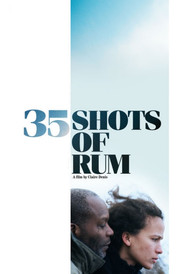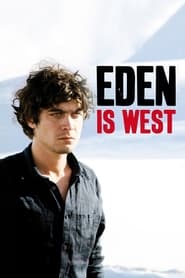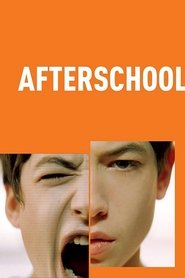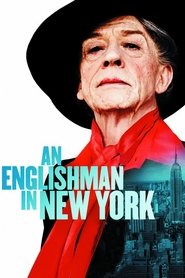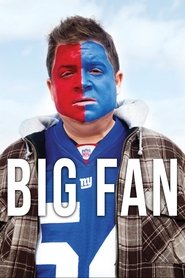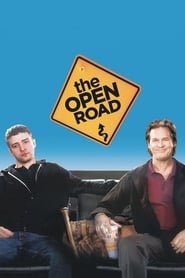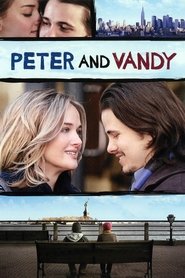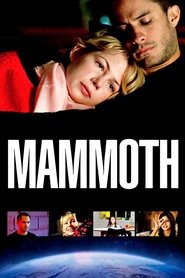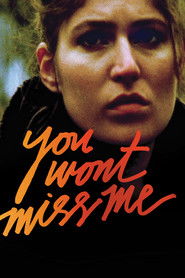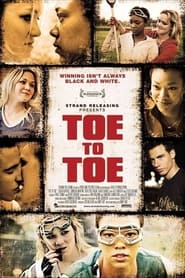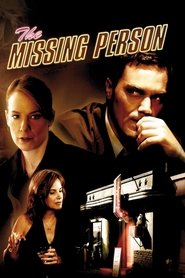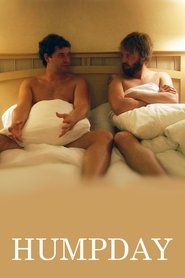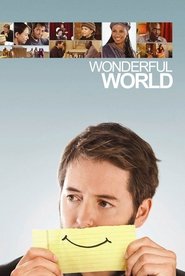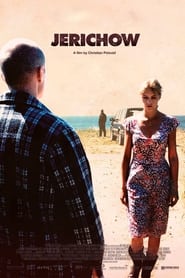New Drama Movies on Kanopy - Page 200
-
35 Shots of Rum
2009
35 Shots of Rum
2009
star 6.8A widower and his daughter witness the retirement of a colleague of his and the closing of her department at her university. -
Ricky
2009
Ricky
2009
star 5.8When Katie meets Paco, they fall in love. From this an extraordinary child is born; Ricky, who quickly develops into something wonderful and not so normal. -
Eden Is West
2009
Eden Is West
2009
star 6.2Desperate to break free from the poverty of his homeland, Elias boards a ramshackle people-smuggling trawler to France. But when the boat is raided by police, Elias leaps into the ocean, eventually finding himself washed up on a Mediterranean beach resort called Eden. So begins Elias odyssesy across Western Europe to Paris, where wondrous promise, helpful new friends and perilous dangers await him every step of the way. -
Afterschool
2009
Afterschool
2009
star 5.5A prep-school student accidentally films the drug-related deaths of two classmates, then is asked to put together a memorial video. -
An Englishman in New York
2009
star 6.3Biographical drama based on the last 20 years of Crisp's life. The literary figure and gay iconoclast emigrated to New York in 1981 and lived there until his death. The film observes Crisp in both his public and private lives, from his seemingly cavalier response to the outbreak of AIDS to his tender relationship with his friend Patrick Angus and his own response to growing old. -
Big Fan
2009
Big Fan
2009
star 6Paul Aufiero, a 35-year-old parking-garage attendant from Staten Island, is the self-described "world's biggest New York Giants fan". One night, Paul and his best friend Sal spot Giants star linebacker Quantrell Bishop at a gas station and decide to follow him. At a strip club Paul cautiously decides to approach him but the chance encounter brings Paul's world crashing down around him. -
The Open Road
2009
The Open Road
2009
star 5.2Minor leaguer Carlton Garret takes an unexpected road trip to track down his estranged father, legendary baseball player Kyle Garret when Carlton’s mother becomes sick. Once reunited, Carlton struggles to deal with the series of misadventures caused by his father’s antics. Attempts at bonding come to a head as the mismatched duo make their way from Ohio back home to Houston to reunite the family. -
Polytechnique
2009
Polytechnique
2009
star 7.1A dramatization of the Montreal Massacre of 1989 where several female engineering students were murdered by an unstable misogynist. -
The Winning Season
2009
The Winning Season
2009
star 6.4A comedy centered on a has-been coach who is given a shot at redemption when he's asked to run his local high school's girls basketball team -
Peter and Vandy
2009
Peter and Vandy
2009
star 6.3Flashbacks and flash-forwards illustrate the rise and fall of a love affair between two New Yorkers. -
Mammoth
2009
Mammoth
2009
star 6.1While on a trip to Thailand, a successful American businessman tries to radically change his life. Back in New York, his wife and daughter find their relationship with their live-in Filipino maid changing around them. At the same time, in the Philippines, the maid's family struggles to deal with her absence. -
Five Minutes of Heaven
2009
star 6.1The story of former Ulster Volunteer Force member Alistair Little. Twenty-five years after Little killed Joe Griffin's brother, the media arrange an auspicious meeting between the two. -
Barking Water
2009
Barking Water
2009
star 6.1Frankie is dying. Irene hasn't forgiven him. And they are racing against time to find their way home. Frankie needs help and Irene is the one he turns to. He must go home one last time. And, like so many times before, Irene is extending herself beyond her common sense. The two set out on a journey that becomes more than getting home; confronting the past, love, understanding, and self discovery. Barking Water is a tale of great love that looks at what brings us all together. It's a tale of home...and what it takes to get there. -
You Wont Miss Me
2009
You Wont Miss Me
2009
star 4.9A kaleidoscopic film portrait of Shelly Brown, a twenty-three year-old alienated urban misfit recently released from a psychiatric hospital. -
Toe to Toe
2009
Toe to Toe
2009
star 3.3Out on the lacrosse pitch, wealthy but troubled Jesse and poor but driven Tosha form an easy and deep bond, but their relationship is threatened once they enter the hallways of an elite prep school they attend in Washington, D.C. There, they must work to overcome racial and other tensions in their classmates, and in themselves, if they hope to keep their friendship alive. -
The Missing Person
2009
The Missing Person
2009
star 5.8John Rosow drinks to forget. He is a former New York City cop turned Chicago-based private investigator. At the last minute, he is hired by someone he's never met to follow a middle-aged male subject on the soon-departing California Zephyr train to Los Angeles. -
Humpday
2009
Humpday
2009
star 5.3Imagine your life is somewhat complete with a house, job, and wife but then your best friend from college comes knocking at your door at 2 AM. During a pot-induced hedonistic party, a plan is hatched between the two friends to create an Art Film of “two really straight men having sex.” If they only knew how much this would affect all of their lives. -
Wonderful World
2009
Wonderful World
2009
star 5.3Ben Singer is a failed children's folk singer, a career proofreader, a less-than-extraordinary weekend dad, and perhaps the most negative man alive. Floundering in all aspects of his life, Ben's only comfort comes from regular chess games and friendly debates on game theory with his Senegalese roommate Ibou. When Ibou is suddenly struck ill, Ben's pessimistic worldview seems unequivocally confirmed. It takes an extended visit from Ibou's sister Khadi for Ben to realize that cynicism may be all a matter of perspective. -
Jerichow
2009
Jerichow
2009
star 6.5In a small town in Northern Germany, a penniless German veteran is offered a job as a deliveryman by an alcoholic Turkish entrepreneur, through which the former meets the latter's wife. -
Locks
2009
Locks
2009
star 7.4A young man in Oakland, California, wakes with a heavy heart and decides to take a walk through the neighborhood to the local barbershop.
 Netflix
Netflix
 Amazon Prime Video
Amazon Prime Video
 Apple iTunes
Apple iTunes
 Apple TV Plus
Apple TV Plus
 Disney Plus
Disney Plus
 Google Play Movies
Google Play Movies
 Paramount Plus
Paramount Plus
 Hulu
Hulu
 HBO Max
HBO Max
 YouTube
YouTube
 fuboTV
fuboTV
 Peacock
Peacock
 Peacock Premium
Peacock Premium
 Amazon Video
Amazon Video
 The Roku Channel
The Roku Channel
 AMC+
AMC+
 Kocowa
Kocowa
 Hoopla
Hoopla
 The CW
The CW
 Vudu
Vudu
 Starz
Starz
 Showtime
Showtime
 PBS
PBS
 Pantaflix
Pantaflix
 FXNow
FXNow
 Tubi TV
Tubi TV
 Kanopy
Kanopy
 Comedy Central
Comedy Central
 Crunchyroll
Crunchyroll
 Microsoft Store
Microsoft Store
 Redbox
Redbox
 Sun Nxt
Sun Nxt
 ABC
ABC
 DIRECTV
DIRECTV
 Crackle
Crackle
 Fandor
Fandor
 Plex
Plex
